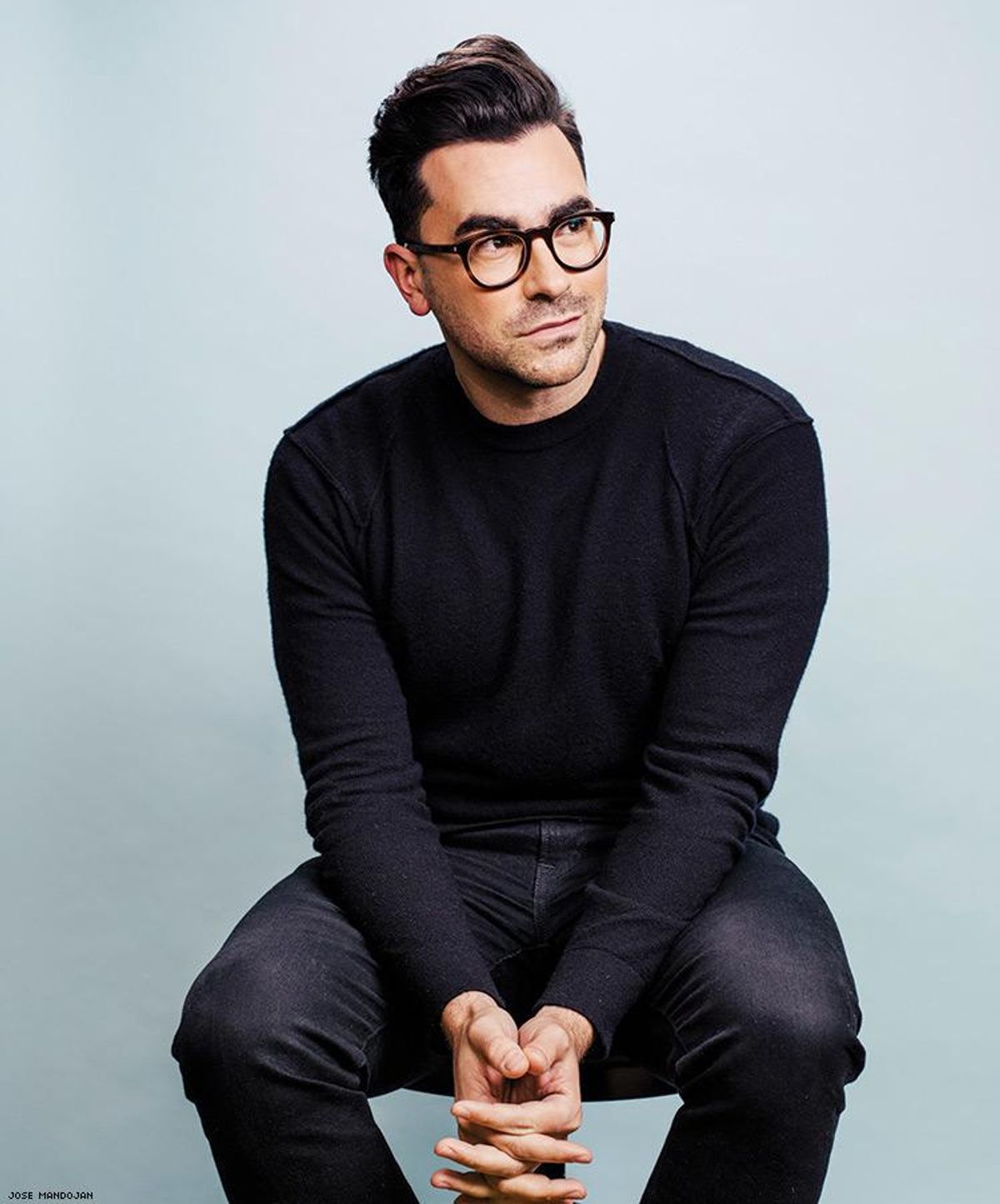television
Comedy Scion Daniel Levy Is the Schitt

When his character came out pansexual on Schitt's Creek, it began to change the way other TV writers depicted queer love.
January 10 2019 7:01 AM EST
January 10 2019 7:57 AM EST
By continuing to use our site, you agree to our Private Policy and Terms of Use.

When his character came out pansexual on Schitt's Creek, it began to change the way other TV writers depicted queer love.
Few people have been raised so immersed in the world of comedy as Dan Levy. As the son of actor-writer Eugene Levy (American Pie), he grew up in the shadows of his father and Levy's hilarious collaborators, Christopher Guest and Catherine O'Hara. The three older actors, who appeared in numerous off-beat comedies, including Waiting for Guffman and Best in Show, have gained a cult following over the years.
Now, the younger Levy is proudly carrying on that legacy while unapologetically tapping into queer experiences seldom revealed on the screen -- big or small. The out gay actor from Toronto is the co-creator, executive producer, and writer of Pop TV's Schitt's Creek, sharing those credits with his father.
The series, currently streaming on Netflix, centers on the wealthy Rose family who, after losing their fortune, are forced to rebuild their lives with their only remaining asset: a small Canadian town named Schitt's Creek (which the patriarch bought as a joke).
The show made history when Levy's character David came out as pansexual and started a courtship with Patrick (Noah Reid), his partner in the Rose Apothecary, which David opened in the town. Some viewers were surprised that the revelation of David's sexuality created zero backlash from the mostly-conservative townsfolk of Schitt's Creek. But Levy says he wouldn't have it any other way, and he says the decision was a "silent form of protest."
"A lot of queer relationships on television and in films are met with extreme tragedy," Levy explains. (The "kill your gays" trope is a real phenomenon, unfortunately.) "The amount of response I got from the third season of our show where we first introduced the character of Patrick was like, 'I really hope nothing bad happens to them.' It was a very conscious effort on my part to not have that happen. In fact, it's been a conscious effort to not ever show the other side on our television program. I have made a very strong point to not ever show bigotry, homophobia, or intolerance on our show because to me, it's a celebration of love. At the root of it, [Schitt's Creek] is a celebration of love between the family and between the relationships that we build."
Historically speaking, queer narratives on TV tend to be met with bigoted antagonists crafted to teach audiences about the queer experience. Levy says he wants to change that, arguing that viewers "learn through osmosis. We learn through what we watch. I've never really learned anything when I feel like it's being forced down my throat."
"I know that in writer's rooms across North America there are still conversations about how much is too much when it comes to intimacy between, in my case, two men," he says. "That's an insane conversation to be having. Like, 'How many times can we show them kissing on air?' We're going to show them kissing as many times as we damn well please. They're in a relationship. If I'm going to walk into a store that I own with my boyfriend, I'm going to kiss him hello. That's what people do. That's what straight couples do. That's what this couple is going to do."
Levy shares his father's famous integrity in his writing, pointing out that their form of comedy is rooted in positivity rather than at the expense of someone else. "I've never really loved mean comedy," Levy says. Although their brand of comedy doesn't go for the jugular, he adds, "you can still be a cynic, you can still have an edge." Levy's acerbic character certainly expresses that on the show: he's cynical and negative, but it's clear he's protecting a sensitive soul.
Though Levy's parents were "incredibly loving and supportive" when he came out gay at 18, he's well aware that's not the case for many queer kids. That's driven him to change the hearts and minds of fans by making sexuality a non-issue. Still, Levy says, "we've come a long way" from when show creators "categorized" queer characters to make us more digestible for straight viewers.
"People in the queer community have always sort of existed in a rather fluid world," he concludes. Having David come out pansexual brings explicit visibility to that fluidity. "To not have to define yourself or categorize yourself, I think, is beneficial to everyone. I think the more we can understand that people just exist and that as long as we're doing good in this world, we don't need to bother or worry about defining or classifying people, the sooner we'll be in a better place."
Even if that place is called Schitt's Creek.
Want more breaking equality news & trending entertainment stories?
Check out our NEW 24/7 streaming service: the Advocate Channel!
Download the Advocate Channel App for your mobile phone and your favorite streaming device!